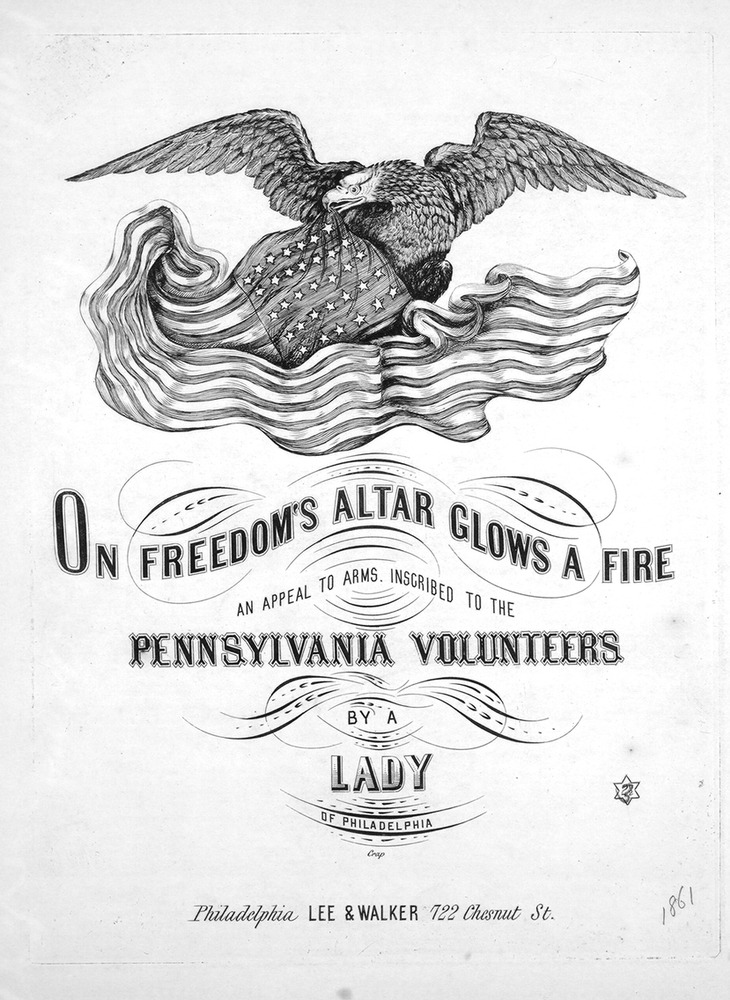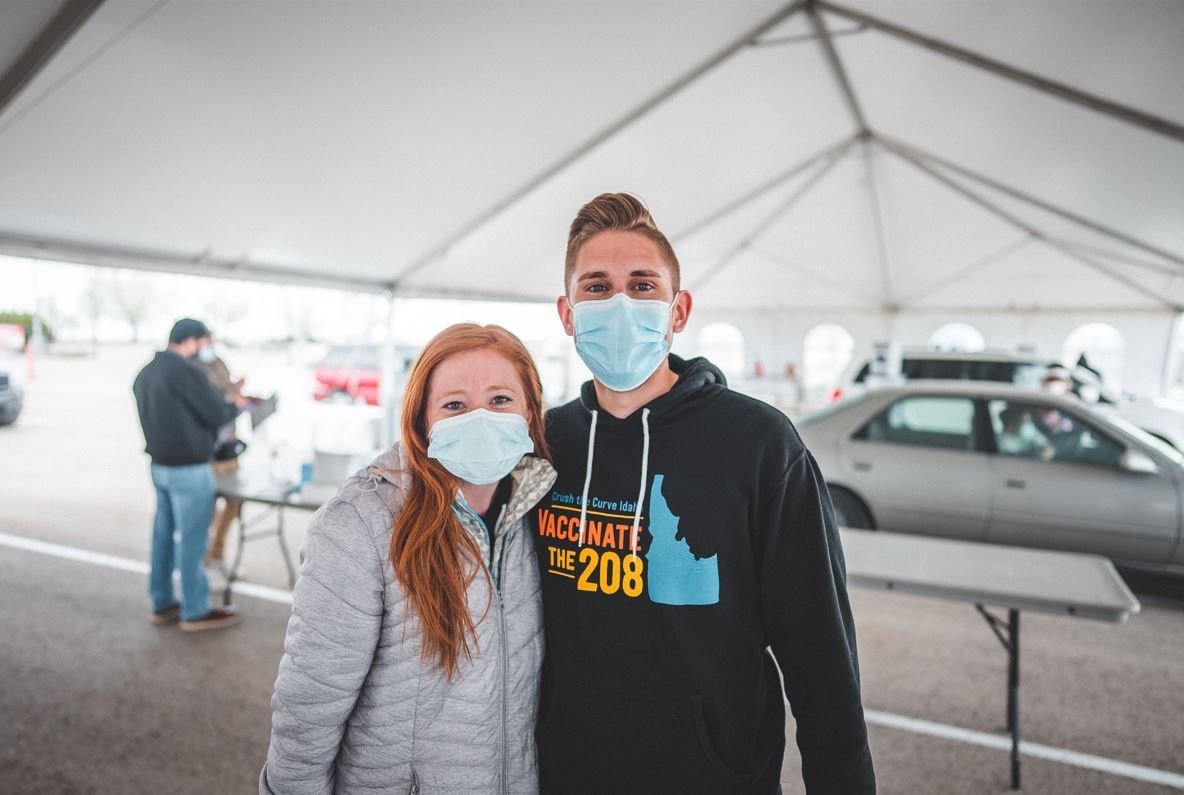The Altar of Freedom

Recently, I was visiting some friends in Eastern Idaho for the 4th of July. While on our way to celebrate and enjoy the day's festivities, we piled into the back of a pickup truck. As I got in I noticed on the back of the truck was a red, white, and blue bumper sticker that read “Freedom Isn't Free.” As I reflected on this saying, I realized that although this phrase reads fairly straightforward it is widely misunderstood.

The reality is that many of the freedoms we enjoy in the United States today did not come freely. They came about as the result of individuals sacrificing some level of individual freedom in order to promote and advance our communities and our nation. From Independence Hall to the sandy beaches of Normandy to the release of the life changing polio vaccine, millions of Americans have made tremendous individual sacrifices to create the best future possible for their posterity and for the United States. Once again, America finds itself in the middle of another decisive moment as the COVID-19 pandemic rages on. Americans are being asked to assist in ending the pandemic by getting vaccinated. However, unlike many of the previous battles our country has faced, health and political leaders have faced an unusually high amount of antagonism from Americans who refuse to get the COVID-19 vaccine.
Why Do Americans Push Back Against The Vaccine?
Concerns regarding the different forms of the COVID-19 vaccines and whether people should get vaccinated have mostly centered around one belief: the United States government and American businesses should not force Americans to be vaccinated.
There are certainly many valid concerns that fuel this belief, but here are a select few I have observed.
First, forcing people to follow a regimen or policy that they’re not naturally inclined to follow tends to increase hostility between opposing sides on the issue and is very likely to reinforce the beliefs (here’s an interesting article that touches on this concept) of those who are scared of getting vaccinated that there is a malicious intent behind pushing vaccinations.
Second, there is no such thing as a perfect vaccine—no matter how hard vaccine developers work or try, there will always be a potential (however small or big that may be) for side effects. As a result, many Americans (myself included) will face or have faced some level of anxiety about getting vaccinated. Recent incidents that coincided with the administration of the COVID-19 vaccine, such as blood clotting that was found in 6 recipients of the Johnson and Johnson vaccine, have further fueled the vaccine debate.
Third, the increased use of social media and the increase of political polarization have made it almost impossible to have civil dialogues about COVID-19. As a result, when legitimate questions or concerns come up that are controversial, the average American tends to remain silent on critical issues and never get their questions answered because they want to avoid politically charged conversations. The rise of polarization and dehumanization has been touched on extensively in previous Civility Initiative articles, but this cannot be understated in the role it’s played in COVID-19! One other important side note on this point, whatever the intentions of censorship in regards to COVID-19, censoring messages that do not coincide with the mainstream thinking (such as the controversial Plandemic documentary or the press conference held by physicians from Texas about hydroxychloroquine being the cure for COVID-19) is arguably more harmful than good according to this article by Pew Research.
Four, above all else, most people who are against the vaccine believe that forcing or requiring vaccination invades individual freedoms. If we allow the government to have too much of a say in personal matters such as vaccinations, we could potentially create a situation where the government is given too much power that we, the American people, can never take back.
Why Do Americans Push For Getting The Vaccine?
As millions of Americans push against vaccines, it’s important to acknowledge that there are millions of Americans who are pushing those around them to get vaccinated. Naturally, this creates a divide as both sides are seeking support from the government for their cause. As of early August, almost 60% of eligible Americans have completed or begun the COVID-19 vaccination process. However, according to herd immunity statistics, the number of vaccinated Americans must get much higher in order for COVID-19 spikes to no longer be a reoccurring issue. This is what the pro-vaccine group of Americans hang their argument on—the only way for the U.S. to collectively move past the pandemic and protect those with comorbidities and immunocompromised systems is for Americans to get vaccinated.
There are dozens of reasons why this belief is supported. I’ll only list four here.
First, COVID-19 resurgences are bound to happen. For example, as the news has covered, the state of Georgia is having significant issues with COVID-19 shutdowns right now. Just recently, the Talbot County School District closed within the first week of opening. Add that to the current outbreak of COVID-19 being seen in the southeast part of the United States (such as Florida), the possibility of hospitals and medical workers becoming overwhelmed again is very possible. The more stressed and overworked our healthcare providers are, the more all patients are affected by the pandemic.
Second, as seen over the past 18+ months of analyzing the coronavirus, it seems there is only one thing we can safely say about it. It’s unpredictable. It’s unpredictable in who it’ll affect and how long each outbreak will last. Furthermore, additional items remain unclear, such as how long does natural immunity last and how many times can someone catch COVID? As the virus mutates and adapts and as vaccination levels remain mostly the same in many states, the chance for the effectiveness of the vaccine to be reduced increases.
Third, getting the vaccine allows society to return to pre-COVID conditions at an accelerated rate. Several studies by health groups around the globe are finding that the COVID-19 vaccines not only protecting those vaccinated from the virus but also prevent and reduce the asymptomatic spread of the virus. As more and more people get vaccinated, the coronavirus could literally become the new afterthought in the world of medicine, much like polio now is in today’s modern medicine.
Four, while those against the vaccine focus on individual freedoms, those for the vaccine are focused on collective freedoms. For example, by getting vaccinated, individuals will be able to visit other states and countries with a substantially lower risk of bringing COVID-19 back home. This idea of collective freedoms and vaccines lines up well with the philosophical concept of the social contract, or the belief where members of a society sacrifice individual freedoms for state protection. Examples of this could include getting a driver’s license or registering your vehicle to help create a more accurate vehicle database for your state, or paying taxes to help pay for critical infrastructure needs. The overwhelming principle of this belief is that a small sacrifice brings about a significant freedom that one could not achieve or reach individually.
What’s The Solution To Overcoming COVID-19 & The Vaccine Debate?
The debate between individual freedoms versus collective freedoms is tricky. Whatever solutions we pursue for ending COVID-19 must acknowledge that. Besides that, it’s critical to acknowledge that any sort of vaccine mandate by the federal government will be met with skepticism and will further antagonize those who are against or uncomfortable with getting the vaccine.
The best hope for ending the pandemic is to: 1) continue encouraging those who are unvaccinated (except for those with significant medical conditions) to get vaccinated, 2) let businesses decide for themselves what they’ll do to handle COVID-19, and 3) lean on the federal government to create incentives to encourage businesses and individuals to get vaccinated.
Regarding encouraging those that we know to get vaccinated, it’s totally understandable that it feels easier to avoid the subject than confront it when there’s a sense of disagreement. Finding the courage to tell friends and family members to get vaccinated is difficult and can sometimes be very uncomfortable. Considering my personal experience of being part of a group - known as Crush The Curve Idaho - I have had many conversations with close friends that have been very, very painful. I have personally been confronted by those who have told me that I was helping to kill people by assisting with them getting the COVID-19 vaccine, I have had friends who no longer talk to me because of our disagreements on the pandemic and I have had many moments of feeling incredibly discouraged because I feel my contributions are not moving the needle in increasing vaccine rates to end this pandemic. Despite those feelings, I do my best to focus on the fact that I’ve personally been able to help tens of thousands of people get critical access to COVID-19 testing, assisted with vaccinating over 5,000 Idahoans, and helped give critical COVID-19 health information to hundreds of Idahoan businesses. Wherever you may be and whatever you may be doing, please continue to encourage those around you to get vaccinated. Avoid those feelings of anger, frustration or discouragement and focus on the lives you’ve helped to improve and potentially save. Because if you don’t, who will?

Besides the efforts of individuals encouraging friends and family members to get vaccinated, businesses can also be incredibly instrumental in increasing vaccine rates. For example, recent policies have been enacted by medical groups across the country to require all of their staff to get vaccinated. This was not a decision forced upon these hospitals by the federal government but rather a choice made by their business leadership due to customer concern about the COVID-19 virus. As the most vulnerable get vaccinated, they receive an increased level of protection from the coronavirus. However, this won’t be enough to protect them sufficiently from becoming ill due to COVID-19 and if vaccine levels are low enough among hospital employees it could affect whether or not their customers will come in for check ups and medical procedures during the pandemic. From a business standpoint, requiring or heavily encouraging employees to get vaccinated will increasingly become the best strategy for allowing businesses to stay open.
Furthermore, the quicker businesses can get their employees vaccinated, the quicker conditions in the workplace can return to pre-COVID conditions (let’s be honest, I think most of us have grown tired of the Zoom experience). When possible, the federal and state government should allow businesses to make their own choices for their employees and customers because they’ll be able to determine the best course of action for vaccine recommendations. Perhaps more importantly, business owners have personal interaction and interest in their customers, their employees and their community. Not to mention, the contemplation of insurance companies to charge higher premiums to unvaccinated customers will act as additional encouragement to employers for promoting vaccination of their employees.
Although the previous two suggestions are important in increasing vaccine rates, the best and perhaps most effective means for increasing vaccination rates would be incentives provided by the federal government. There’ll definitely be those that disagree and advocate for vaccine mandates to be put in place, but forcing people to do something that they’re unwilling or fearful to do hardly ever works out well. The federal government should seek any and all options available to encourage Americans to get vaccinated through the “carrot method” (ie the reward method) and only use mandates as a last resort. The government has literally allocated billions, even trillions at this point of the pandemic, on COVID-19 testing, information campaigns and vaccinations. It’s not unreasonable for the federal and state government to examine ways to encourage vaccinations through financial incentives. For example, some recent financial incentives from state governments include the Vax A Million lottery in Ohio held for those who got vaccinated to the $500 incentive for Department of Corrections employees in Colorado to get vaccinated (you can find more examples of ways the government is incentivizing getting vaccinated by clicking here). Perhaps the most intriguing idea presented I’ve heard so far, what about looking into a potential one time tax incentive ranging between 3-5% tax waiver for federal and state taxes? None of these solutions are perfect but if it helps our society get closer to the herd immunity threshold, it should definitely be pursued.
Final Thoughts
The COVID-19 pandemic has been a challenging experience in different ways for each American. It has pushed many to their breaking points and has further divided the nation in ways that may never quite be undone. Sacrifices will need to be made if our country is to move past this pandemic. To be clear, making personal sacrifices is not something that should be done lightly. But, there are times for the sake of the collective good and collective freedoms that it’s absolutely worth it. History shows us that time and time again Americans have accepted that challenge to lay their individual sacrifices on the “altar of freedom.” That moment of sacrifice comes to each of us where we must decide whether we will put ourselves first or our country first. The rights of individuals are important. However, so are the collective rights of our community. The pandemic has pitted these two ideas against each other. But in the end, getting vaccinated and moving past this pandemic will only enhance and increase all freedoms we seek to enjoy (the recent breaking news in Moderna moving forward on their mRNA HIV vaccine trial is a great example of this). Regardless of personal feelings about the pandemic or vaccines, we must remember: “Freedom Isn’t Free.”
